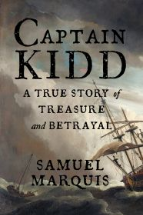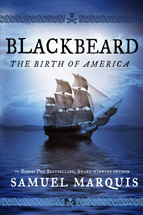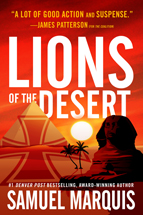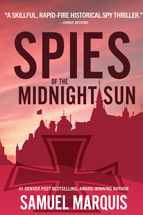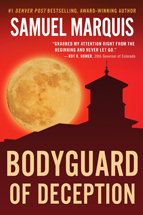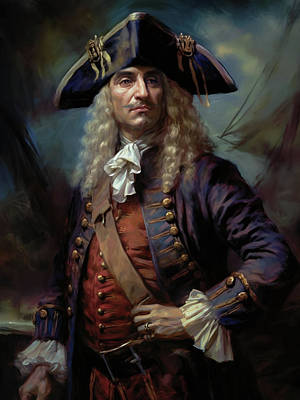 My ninth-great-grandfather Captain William Kidd stands today as one of the three most famous “pirates” of all time, along with Sir Henry Morgan plastered on rum bottles and Edward Thache (Blackbeard), who, mythology tells us, lit slow-burning fuses in his prodigious beard to terrify his enemies. But how much of a pirate was Captain Kidd really? Just how many ships did he plunder, how many men did he force to walk the plank, and how many throats did he slit? That is the subject of my forthcoming book, Captain Kidd: A True Story of Treasure and Betrayal, due for release in May 2025.
My ninth-great-grandfather Captain William Kidd stands today as one of the three most famous “pirates” of all time, along with Sir Henry Morgan plastered on rum bottles and Edward Thache (Blackbeard), who, mythology tells us, lit slow-burning fuses in his prodigious beard to terrify his enemies. But how much of a pirate was Captain Kidd really? Just how many ships did he plunder, how many men did he force to walk the plank, and how many throats did he slit? That is the subject of my forthcoming book, Captain Kidd: A True Story of Treasure and Betrayal, due for release in May 2025.
A larger-than-life figure in his own lifetime and the original source of many of the enduring myths of pirates we now hold dear, Captain Kidd has captivated the imaginations of children and adults alike for 325 years now. Indeed, without my salty ancestor there might never have been fictionalized swashbucklers of the likes of Long John Silver, Captain Hook, Captain Blood, or Captain Jack Sparrow, for Captain Kidd, more than any other sea rover during the Golden Age of Piracy (1650-1730), has done the most to immortalize the association of treasure maps, buried chests of gold, silver, and jewels, and macabre ghost stories with pirates.
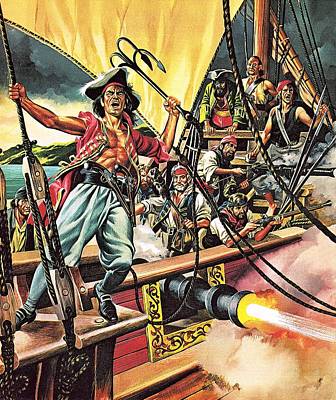 Captain Kidd: A True Story of Treasure and Betrayal is the true story of my ninth-great-grandfather Captain William Kidd, who continues to stand today as one of the most notorious outlaws of all time, along with Blackbeard, Jesse James, and John Dillinger. And yet, in his own lifetime the English-American privateer was a leading New York citizen and American patriot dubbed the “trusty and well-beloved Captain Kidd” by the King of England himself, and he has been described by historians as a “worthy, honest-hearted, steadfast, much-enduring sailor” who was the “victim of a deliberate travesty of justice,” making him sound far more like the inspirational Horatio Nelson than the menacing Blackbeard or other Golden Age pirates. How can these two antipodal viewpoints be reconciled? In the judgment of history, was Kidd a pirate or not, hero or villain, and why have literary titans like Washington Irving, Edgar Allan Poe, Nathaniel Hawthorne, and Robert Louis Stevenson made him the centerpiece of their most enduring works?
Captain Kidd: A True Story of Treasure and Betrayal is the true story of my ninth-great-grandfather Captain William Kidd, who continues to stand today as one of the most notorious outlaws of all time, along with Blackbeard, Jesse James, and John Dillinger. And yet, in his own lifetime the English-American privateer was a leading New York citizen and American patriot dubbed the “trusty and well-beloved Captain Kidd” by the King of England himself, and he has been described by historians as a “worthy, honest-hearted, steadfast, much-enduring sailor” who was the “victim of a deliberate travesty of justice,” making him sound far more like the inspirational Horatio Nelson than the menacing Blackbeard or other Golden Age pirates. How can these two antipodal viewpoints be reconciled? In the judgment of history, was Kidd a pirate or not, hero or villain, and why have literary titans like Washington Irving, Edgar Allan Poe, Nathaniel Hawthorne, and Robert Louis Stevenson made him the centerpiece of their most enduring works?
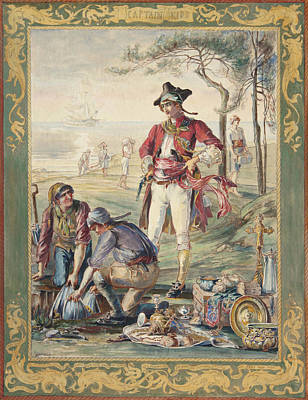 Beginning in the late 1690s, Captain Kidd played a prominent role on the global political stage and was an international folk sensation—yet, his remarkable tale has been lost to us in a foggy haze of legend, myth, and British propaganda for the past four centuries. My narrative non-fiction biography peels away the layers of mythology and Crown propaganda to uncover and illuminate the real living, breathing seafaring adventurer and civic leader behind the myth. Specifically, Captain Kidd gets to the heart and soul of the legendary New York sea captain and paints a fresh portrait of the man, by scrupulously recreating his adventurous, romantic, and perilous world during the Glorious Revolution and Golden Age of Piracy in the years 1688-1701. During this epic historical period, when New York City replaced Port Royal, Jamaica, the so-called “wickedest city on earth,” as the foremost pirate enclave in the New World, Captain Kidd became entangled in one of the biggest political scandals in British-American history, rocking the New World and the Old and threatening England’s valuable trade with India.
Beginning in the late 1690s, Captain Kidd played a prominent role on the global political stage and was an international folk sensation—yet, his remarkable tale has been lost to us in a foggy haze of legend, myth, and British propaganda for the past four centuries. My narrative non-fiction biography peels away the layers of mythology and Crown propaganda to uncover and illuminate the real living, breathing seafaring adventurer and civic leader behind the myth. Specifically, Captain Kidd gets to the heart and soul of the legendary New York sea captain and paints a fresh portrait of the man, by scrupulously recreating his adventurous, romantic, and perilous world during the Glorious Revolution and Golden Age of Piracy in the years 1688-1701. During this epic historical period, when New York City replaced Port Royal, Jamaica, the so-called “wickedest city on earth,” as the foremost pirate enclave in the New World, Captain Kidd became entangled in one of the biggest political scandals in British-American history, rocking the New World and the Old and threatening England’s valuable trade with India.
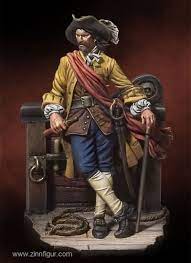 Captain Kidd is a tale of war, romance, and politics at the turn of the seventeenth century, as told through the point of view of Kidd’s “lovely and accomplished” wife Sarah, the love of his life, and their arch-enemy Lord Bellomont, the Crown-appointed English governor of New York, Massachusetts, and New Hampshire. These two historic figures walked alongside Captain Kidd during the transformative events of his day, which included the first age of globalization and large-scale state bureaucracy, English and colonial American politics at the highest levels, and America’s first stirrings of rebellion in its War of Independence against Mother England. Critical to the Captain Kidd story is newfound rigorous genealogical and DNA evidence that dramatically changes the Kidd narrative with respect to his British Isles’ origins and his relationship with his formidable and devoted wife Sarah Kidd.
Captain Kidd is a tale of war, romance, and politics at the turn of the seventeenth century, as told through the point of view of Kidd’s “lovely and accomplished” wife Sarah, the love of his life, and their arch-enemy Lord Bellomont, the Crown-appointed English governor of New York, Massachusetts, and New Hampshire. These two historic figures walked alongside Captain Kidd during the transformative events of his day, which included the first age of globalization and large-scale state bureaucracy, English and colonial American politics at the highest levels, and America’s first stirrings of rebellion in its War of Independence against Mother England. Critical to the Captain Kidd story is newfound rigorous genealogical and DNA evidence that dramatically changes the Kidd narrative with respect to his British Isles’ origins and his relationship with his formidable and devoted wife Sarah Kidd.
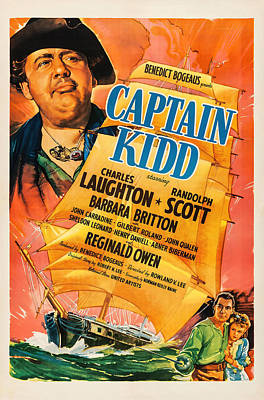 Behind the Captain Kidd myth was a real man: a son, a husband, a father woven into the tapestry of early America, rendering him for all the ages a unique yet flawed colonial American hero (or perhaps better, antihero), whose life story was fascinating, exciting, bizarre, and heart-rending enough that literary titans Washington Irving, Edgar Allan Poe, Nathaniel Hawthorne, and Robert Louis Stevenson have all made him eternal.
Behind the Captain Kidd myth was a real man: a son, a husband, a father woven into the tapestry of early America, rendering him for all the ages a unique yet flawed colonial American hero (or perhaps better, antihero), whose life story was fascinating, exciting, bizarre, and heart-rending enough that literary titans Washington Irving, Edgar Allan Poe, Nathaniel Hawthorne, and Robert Louis Stevenson have all made him eternal.
The true story of Captain William Kidd is a tale that is both uplifting and tragic. It is nothing like the family stories I heard growing up. In fact, it is far better—because it is actually true.
Pre-Order Now for the Swashbuckling May 2025 Release!
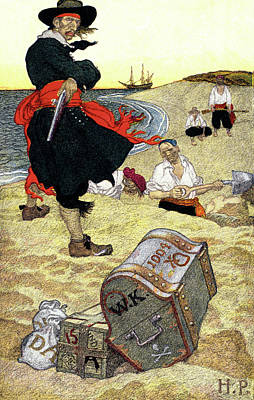
Top Image Copyright: Shanina Conway



